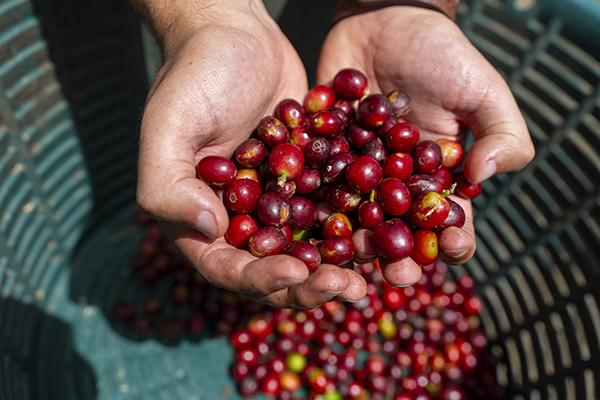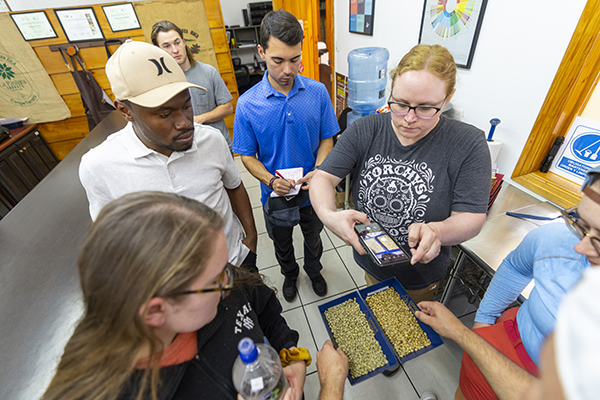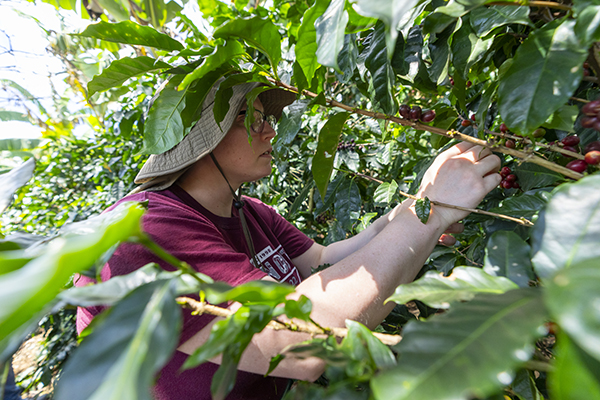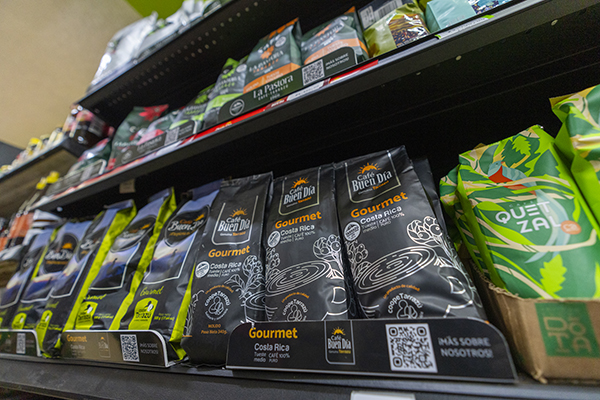Texas A&M University is now home to the nation’s first academic coffee certificate. This announcement comes as coffee’s popularity has skyrocketed across the nation, increasing demand for graduates skilled in coffee-related disciplines. Data from the Specialty Coffee Association shows the specialty coffee sector is experiencing rapid expansion, necessitating the employment of adept professionals capable of delivering top-tier coffee quality and experiences.
“There is an increasing demand for high-quality coffee that will require expertise in all aspects of production and marketing,” said Texas A&M Center for Coffee Research and Education director Roger Norton, Ph.D.
To meet the needs of the growing coffee industry, Texas A&M is offering a new standalone certification designed for undergraduate students in the Texas A&M College of Agriculture and Life Sciences but available to all Texas A&M students. The Coffee Processing and Quality Certificate, available through the Department of Food Science and Technology, is designed to provide students with the knowledge and skills needed to be competent professionals in that industry. This certificate is a result of an inter-disciplinary collaboration between the Department of Food Science and Technology, the Department of Horticultural Sciences and the Department of Agricultural Economics.

“Through the certificate program, we want to provide students with the educational opportunities and experiences needed to succeed in that industry should they choose that as their career path,” Norton said.
The certificate offers students focused coursework on coffee production, processing and quality evaluation, emphasizing the connections to various food products. Additionally, the certification track delves into the significance of coffee and other food items in promoting human health and wellness.
“This certification will help support and strengthen one of the world’s most important agricultural industries, by creating a new generation of agricultural and business leaders. We’re proud to be the national leader,” said Jeffrey W. Savell, Ph.D., vice chancellor and dean for Agriculture and Life Sciences.
Norton said this is the only academic title in coffee being offered by any university in the U.S. and is the equivalent of a minor in an academic discipline.
“The center has been involved in the development of the certificate and will continue to coordinate and collaborate with other departments in its implementation,” he said. “The certificate program takes in aspects of a number of additional academic fields such as horticulture, crop science, agricultural economics, hospitality and tourism, and nutrition.”
Students will learn about technological advances in coffee processing, the genetics of various coffee species, and practical alternative uses for coffee components and byproducts.
Meeting the needs of a growing industry
Mian Riaz, Ph.D., Professorship in Food Diversity, director of the Extrusion Technology Program and associate head of the Department of Food Science and Technology said the goal of this certificate program is to make students knowledgeable about “each step in coffee’s journey from the farm to the cup.”

“We will address the steps in coffee production, including harvesting, processing, fermentation, roasting and evaluating, as well as delving into coffee’s health benefits and how to extract and blend flavors,” Riaz said. “There are also opportunities for research-related directed study and for internships and study abroad.”
Eric Brenner, assistant director of the Texas A&M Center for Coffee Research and Education, said the certification program will prepare students for the needs of an evolving industry while learning the importance of having a steady supply of sustainable, good quality coffee to meet a growing consumer demand.
“We also want the students to understand the extra effort it takes – often under humble and challenging conditions — to produce that cup of coffee they enjoy,” he said. “We want them to see the challenges of the small-holder grower and see how they might benefit from the extra effort of growing higher-quality specialty coffees that command a better price.”
Brenner said he hopes the addition of the certification program will allow the college to “become a pipeline to help meet the current and future expectations of the coffee industry.”
Requirements for the coffee certificate
The certificate and related courses will be available this fall.
To earn the certificate, students must complete four essential courses relating to topics that include food safety and preventive controls, food bacteriology, healthy functional food ingredients, sensory evaluation, and processing coffee and high-value crops.
Students can also take an elective course in direct study or research or choose between courses on the coffee industry value chain, the engineering of packaging, or food chemistry.
Together, the courses for certification total 15 semester hours – the same as an academic minor.
Components of the certificate program
As part of the certification track, Nadav Mer, assistant professor of practice in the Department of Agricultural Economics with more than 10 years of experience in the specialty coffee industry, will teach a new course on coffee industry value chains.
“This course will be one of the options for food science and technology students wanting to earn their certificate but it will be open to all Texas A&M students,” Mer said. “In it, students will get an overview of how coffee is made — from the small-holder farmer to the consumer’s cup and each value-added step in between.”
Mer said coffee has what is perhaps the most complex value chain of any agricultural commodity, and the idea behind the new course is “to break all that down” for the student.
As part of certification course opportunities, instructors also hope to standardize an annual study-abroad opportunity, such as the recent global engagement study-abroad trip to Costa Rica. In January, Mer and Brenner co-led a group of students in a study-abroad course that gave them a firsthand look at the coffee development process in Central America.

“We wanted the students to experience each link in the coffee value chain from picking, washing and drying the beans to the sorting and processing in coffee factories, then finally the exporting of the coffee,” Mer said.
Brenner said such trips provide students with a level of understanding that can’t be duplicated in the classroom.
“They learn everything that goes on behind the scenes in coffee production, including the science and mechanisms for production — all the way to the consumer,” Brenner said. “The students also get to see firsthand the many issues faced by the small-holder coffee farmer and the seasonal laborers who pick their coffee beans.”
He said in the future the certification track may also provide additional study-abroad opportunities in other coffee-producing countries of the world.
Why a certificate in coffee?
Coffee is grown in more than 50 countries around the world, according to the National Coffee Association. Data from the association shows daily coffee consumption is up to a 20-year high among U.S. adults, with a little over two-thirds saying they drank coffee within the past day.

“Completing the certification program would uniquely position individuals for numerous roles within the coffee industry, capitalizing on this burgeoning sector’s opportunities,” Riaz said. “The spectrum of industry employment includes roles ranging from coffee cultivation to cafe management.”
Mer said he and others involved in offering the certificate have attended various industry expositions and conferences and have “seen a lot of excitement out there” about Texas A&M offering this certificate.
Norton and Brenner said they hope to grow the educational opportunities related to the certificate and expand the program to encompass additional audiences.
“We would like to make these opportunities available to more students and the public, and to provide education and training for the small-holder farmers to help them improve their livelihoods,” Norton said. “For now, this certification program will provide a unique educational experience for our students and give them an edge should they decide to pursue a career in the coffee industry.”


